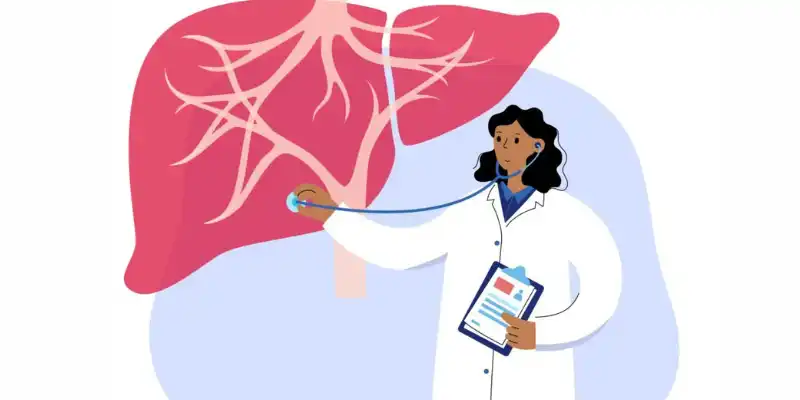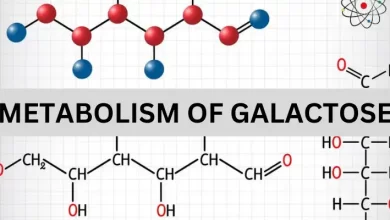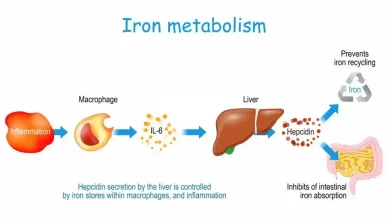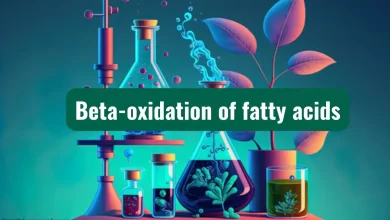Glycogen is the main form of carbohydrate storage in animals, which is synthesized from excess glucose in almost all animal tissues. The liver and skeletal muscles are the primary source of glycogen storage. The liver stores excess glucose in the bloodstream as glycogen to compensate for this lack of sugar and energy by producing and releasing glucose into the bloodstream between meals and when blood glucose levels drop.

The process of converting glucose to glycogen and converting glycogen to glucose occurs continuously in our body, which requires the help of special enzymes, which can cause mild to severe disorders if these enzymes malfunction. There are a series of glycogen-related diseases, which we call glycogen storage diseases, and they are classified into eight types.
type1: Von Gierke disease
The first common glycogen disorder is Von Gierke, a defect in the glucose 6-phosphatase enzyme. Imagine that glycogen is broken down into glucose 1-phosphate in the liver and muscle, and glucose 1-phosphate is converted into glucose 6-phosphate.
What if we don’t have glucose 6-phosphatase? We said that glucose-6-phosphatase is present only in the liver, and some amount is present in the kidney, and this enzyme is not present in the muscles. If the glucose 6-phosphatase in the liver has a problem, it causes the blood sugar to drop.
Because the glycogen in the liver cannot be converted to glucose when it is converted to glucose 6-phosphate and the blood sugar drops, we have hypoglycemia (low blood sugar). Conversely, glycogen can be stored in the liver and hepatomegaly. It causes (enlargement of the liver) and this glucose 6-phosphate that was created goes through the glycolysis pathway and turns into pyruvic acid.
Pyroic acid can be converted into various compounds, and on the other hand, it can be converted into lactic acid, and lactic acidosis occurs from its accumulation. On the one hand, it can be converted into acetyl coenzyme A. Acetyl coenzyme A can be converted into fatty acids and cholesterol and cause hyperlipidemia. On the other hand, acetyl coenzyme A can be converted into ketone bodies and cause the occurrence of hyperlipidemia—Keto acidosis.
Therefore, a person who has Von Gierke’s disease and has glucose 6-phosphatase deficiency can have these symptoms: 1-hepatomegaly, 2-hypoglycemia, 3-lactic acidosis, 4-ketoacidosis 5-hyperlipidemia
type2: Pompe disease
It is caused by a lysosomal enzyme called α1→4 and 1→6 glucosidase or acid maltase, a fatal disease, and glycogen accumulation occurs in lysosomes. Especially about the lysosomes of heart cells and causes heart problems.
type3: Maladie de Cori ou Forbes
There is a defect in the debranching enzyme. Therefore, the stored glycogen cannot be broken down well and provide our blood sugar needs.
It can cause almost the same characteristics as glycogen storage disease type 1, but it has a better condition about sugar levels. Because if glycogen cannot be broken down under the name of debranching enzyme deficiency, in this limited dextrinosis disease, we can have gluconeogenesis and provide blood sugar levels if in type 1 we had glucose 6-phosphatase problem. Which could not produce glucose. Therefore, if gluconeogenesis occurs, it will not progress in the enzymatic stage and will not be converted into glucose. For this reason, we say that in type 3, the symptoms are milder than in type 1.
For more information about Maladie de Cori, Forbes suggests checking the glycogenoses.org website.
type4: Amylopectin disease or Andersen disease
We have a branching enzyme deficiency. When the branching enzyme has a problem, we accumulate incomplete glycogen in liver tissues and muscle tissues. Because it is incomplete and the branching process is not done well, glycogen accumulates incompletely in heart and liver cells. It causes heart and liver problems, which are also fatal and can cause particular problems for people at a young age.
type5: McArdle’s syndrome
Muscle phosphorylase is a problem in these patients. We said that the glycogen stored in the muscle cells mainly provides the muscle cells’ sugar needs. When phosphorylase has a problem, these people have problems in terms of energy sources; they cannot do heavy work and have unique issues.
type6: Hers disease
Hepatic phosphorylase has a problem. So, on the one hand, we have blood sugar; on the other hand, glycogen accumulates in the liver. On the one hand, we have hepatomegaly, and on the other hand, we have hypoglycemia.
type7: Tarui disease
The problem is in the phosphofructokinase of muscle cells and red blood cells. The symptoms of this disease are like type 5. The person cannot do heavy sports because the phosphofructokinase enzyme has a problem. Still, there is also a problem with erythrocytes or red blood cells in these patients, and the possibility of anemia in these people is high.
type8
the last type of glycogen disorder results from the Deficiency of the enzyme phosphorylase kinase in the liver, and its symptoms are similar to type 6 disease.





